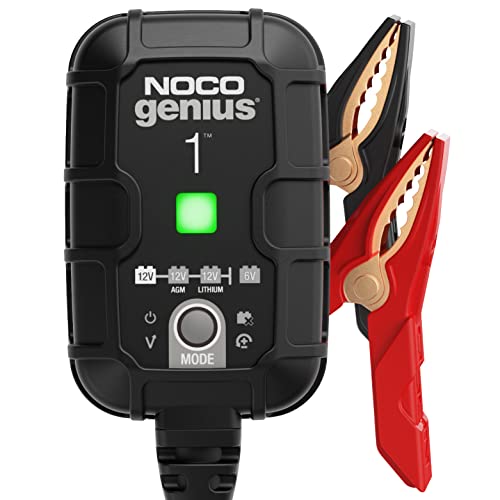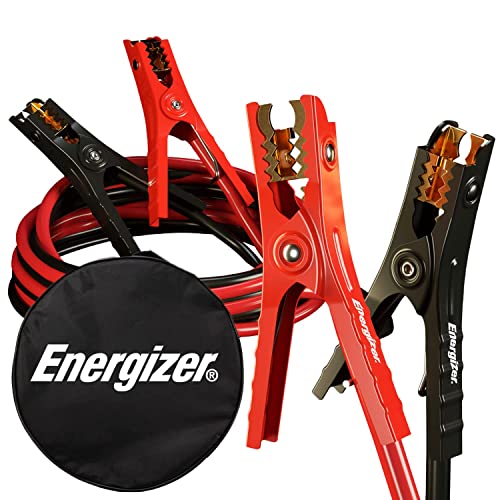If you are planning on buying a car battery charger, you may be thinking about getting a 1 amp or 2 amp charger. We've researched the difference between a 1 amp and 2 amp car battery charger so you can decide which is right for you.
The rule of thumb in battery chargers regardless if they're car battery chargers or not is that the higher the amps, the faster the charging rate is. However, the downside of fast chargers is that they can potentially shorten the lifespan of the battery.
In this post, we'll talk about how and why car battery chargers with higher amp ratings can shorten the life of your car battery. A car battery charger should be chosen carefully because it will impact the performance of your battery. If you're not sure how to choose the right battery charger for your battery, then continue reading to learn more.
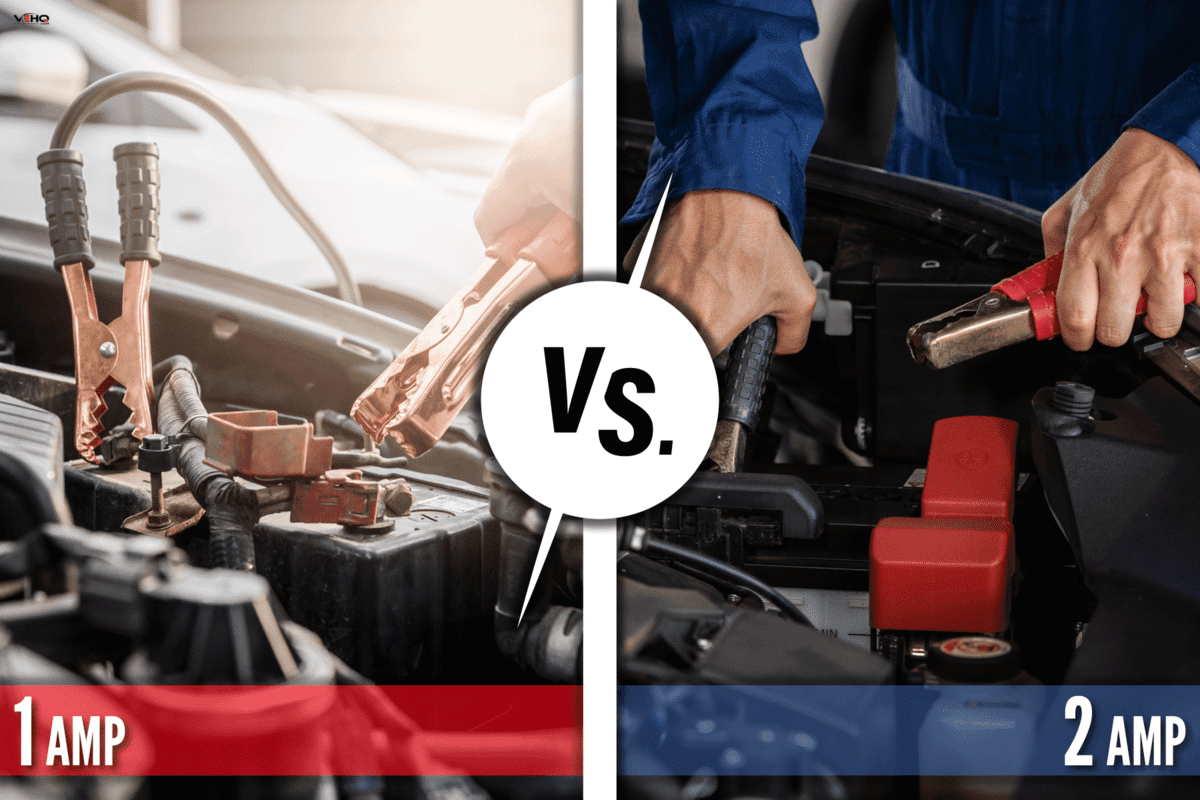
Why Do You Need a Car Battery Charger?
Car batteries, like everything else, need to be maintained. If you do not take care of your car batteries, they will lose their ability to crank up your car. You might be surprised that the simplest way to maintain and keep your battery from draining is by using your car regularly.
By using your car regularly, you run the alternator which charges the battery. However, a car that is sitting in the garage for long periods of time will lose its charge. This will cause your battery to die. This is where a car battery charger comes in handy.
A car battery charger can help you to prevent your battery from dying and also keep your car battery charged. It is an essential tool for those who live in areas where the weather is cold or rainy. This is because low temperatures slow down the electrochemical reaction inside the battery and this will cause your battery to drain faster.
Is Faster Better?
In today's fast-paced world, we're always under the impression that faster is better. While this can be true in some cases, car battery charging is an exemption.
If you need to get your battery charged right away, then you can bend this rule, but it is not advisable to do this on a regular basis. This is because car battery chargers with high amp ratings generate more heat than slower ones.
The higher the amp rating, the hotter the battery charger gets. You don't want to put your car's battery in harm's way, which is why it's best to choose a car battery charger with a lower amp rating. It may be slower, but it will help you get the most out of your battery throughout its lifespan.
How Long Can I Fully Charge My Car Battery With a 1-Amp Car Battery Charger?
A car battery charger that is rated at 1 amp per hour will fully charge a car battery in 48 hours while a car battery charger that is twice as powerful can fully charge the battery in 24 hours.
Can You Overcharge a Car Battery at 1 or 2 Amps?
Overcharging is a common problem with manual car battery chargers and not with smart car battery chargers. Even if you have a car battery charger with the least amperage output, as long as it's manual, it can still potentially overcharge if left unattended.
In addition, smart car battery chargers are more intelligent than manual car battery chargers. The difference is in the way they perform their work.
A manual car battery charger uses the traditional transformer and rectifier mechanism only while a smart car battery charger uses a microprocessor to direct the operation. When a microprocessor takes charge of a task, it is more accurate and precise.
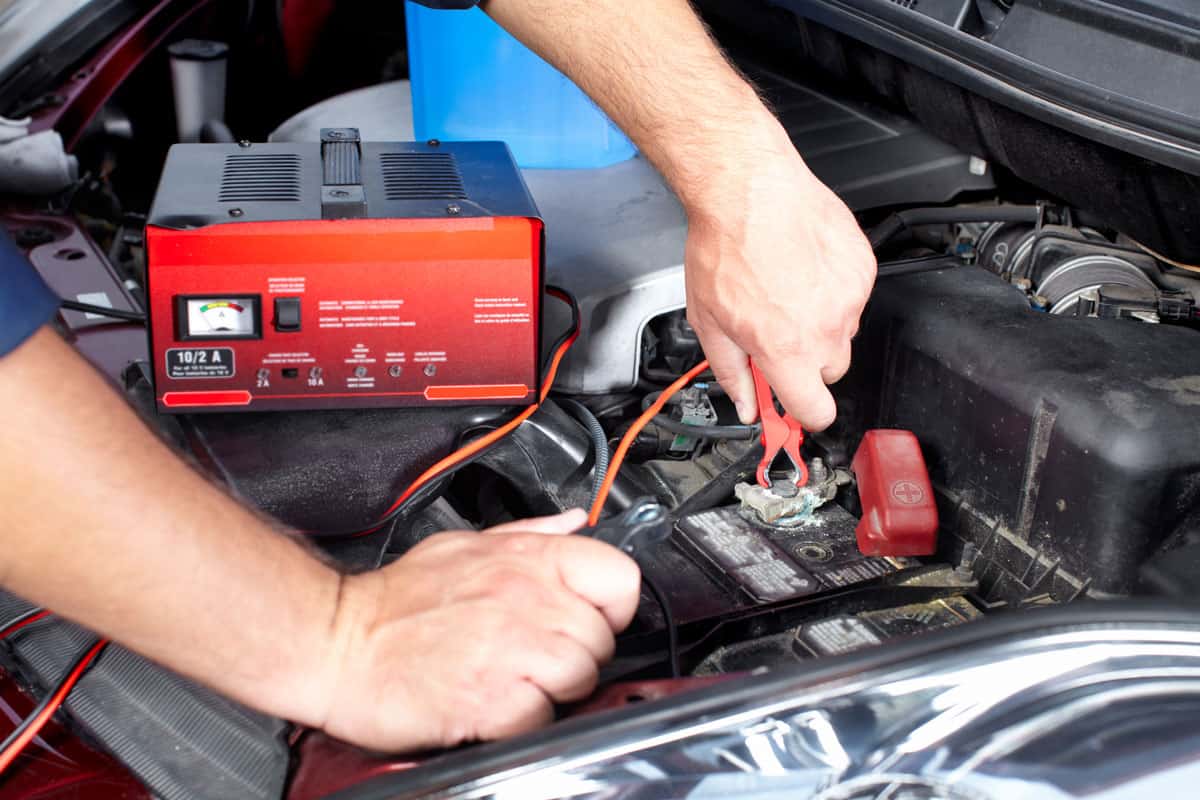
What are the Main Features of a Smart Car Battery Charger?
There are three main features that you'll find in most smart car battery chargers. They're as follows:
Convenience
One of the main features of a smart car battery is that it takes care of the whole charging process automatically and will adjust the charge output accordingly when it's almost full.
While a person has to monitor the charging time of a manual car battery charger, the microprocessor in a smart battery charger can do this job without any help.
Overcharging protection
Smart car battery chargers are also equipped with overcharging protection. This feature allows the battery to be charged safely up to 100% of its capacity with the charger still connected to it without the risk of damaging the battery or even causing an explosion.
Digital thermal sensor
A digital thermal sensor monitors the temperature of the battery and automatically shuts the charger down if the temperature of the battery rises too high.
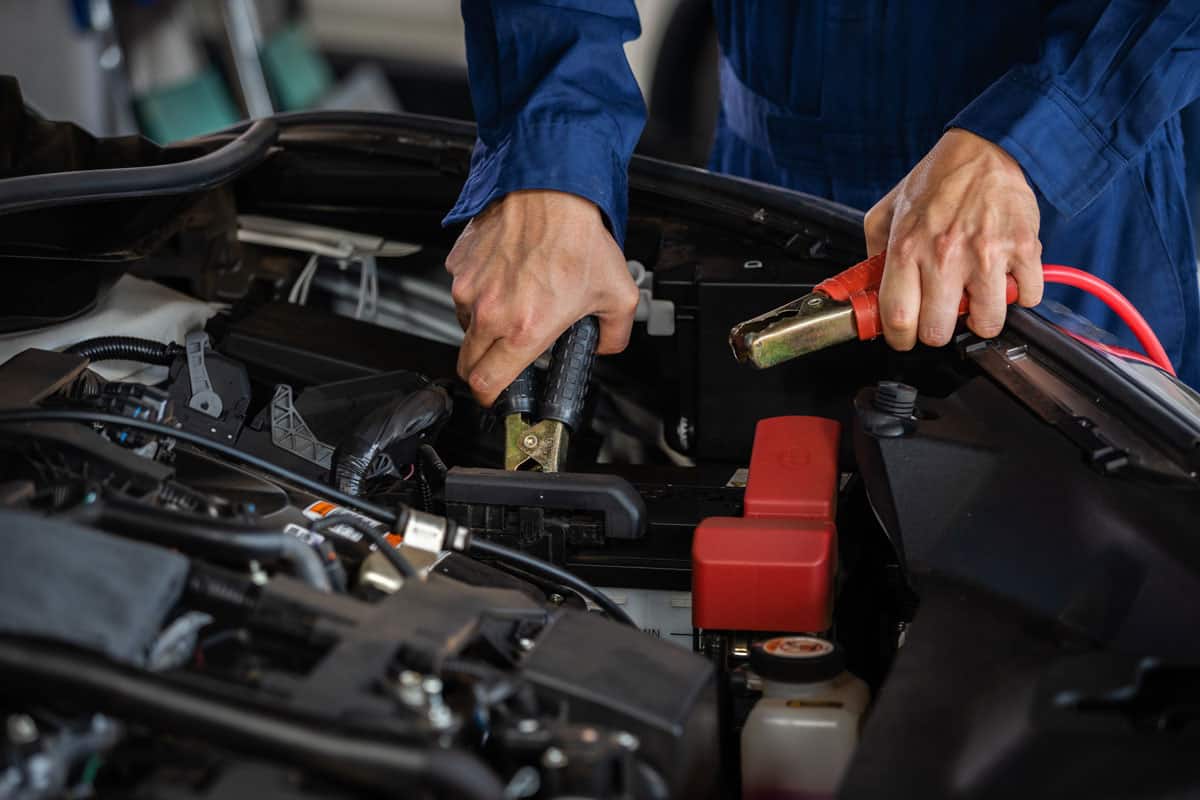
How To Charge a Car Battery Using a Smart Car Battery Charger
- Disconnect the car battery
- Plug the charger into an ordinary AC household outlet
- Hook the red clamp to the positive terminal of the car battery and the black clamp to the negative terminal
- Select the 12V AGM mode by toggling the mode select button
- You should see the charge light indicator blinking while the charger is charging
- You'll know if the battery is fully charged when the green light indicator is lit steadily.
Smart Battery Charger Not Charging - What To Do?
- If the car battery is flat, the charger may not respond. You'll need to enter "Force Mode" in this case
- Press and hold the mode button for 7 seconds to enter "Force Mode"
- You'll know when "Force Mode" is activated when you see all four modes flashing (12V, 12V AGM, 12V Lithium, and 6V)
- Select your charging mode from among the four mode options
- "Force Mode" will attempt to resurrect your dead car battery for 5 minutes, after which it will resume to normal charging.
Check out this smart car battery charger/maintainer on Amazon.
Can a Car Battery Charger Start a Car?
It is important to understand that a car battery charger is not designed to start a car. The trickling current output produced by a car battery charger is too small to start a car.
A car battery charger is only used to replenish a battery when its charge is depleted due to a prolonged period of non-use.
For example, if your car has been sitting for several months without being driven, you can use a car battery charger to charge the battery with enough juice so it can start the car.
What Does Jumpstarting a Car Battery Mean?
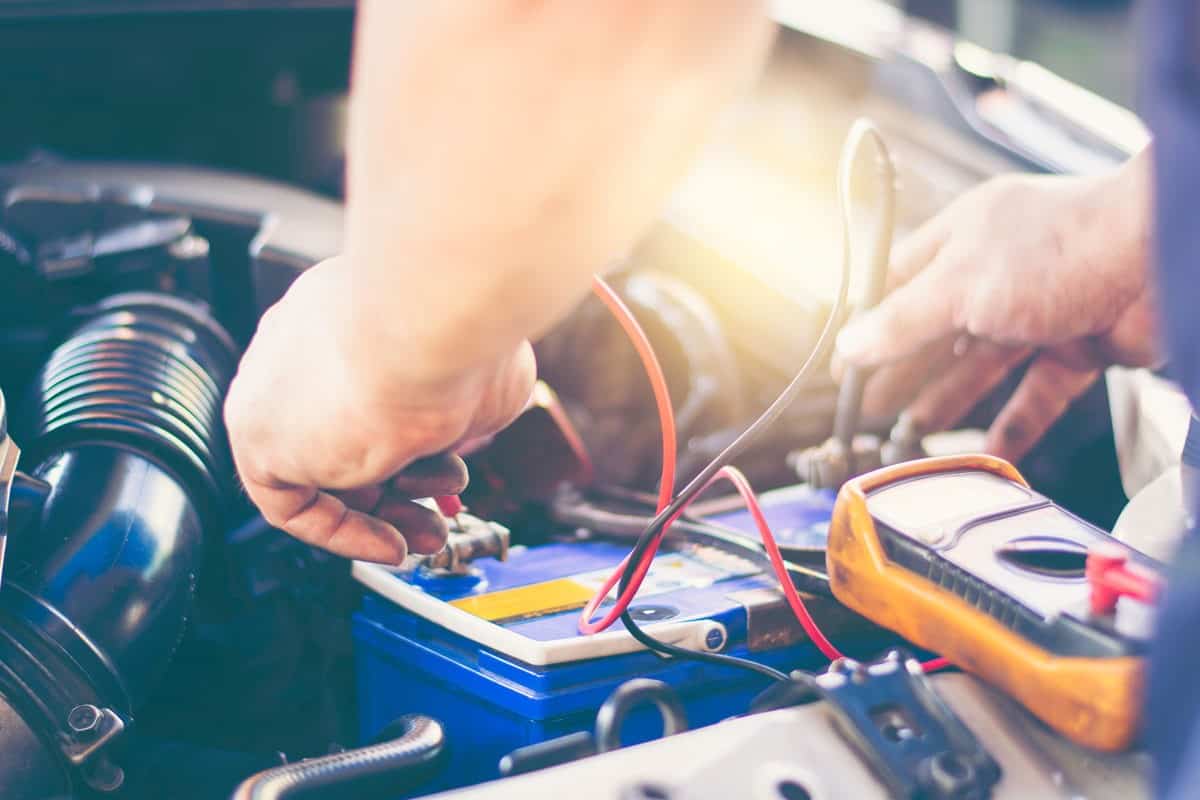
When you jumpstart a car battery, it means that you will take the car and charge it up with a different source of power other than its battery. The most common source of power in jumpstarting a car battery is, ironically, another car battery.
Jumpstarting a car basically means giving your battery an extra kick to get it moving. You'll need a second vehicle to do this: one with a working battery. Here's how you do it:
- Let the two vehicles face each other so you can easily hook up the jumper cables.
- Open the hoods of both vehicles and disconnect the batteries.
- Check and clean the battery terminals for dirt and rust.
- Hook the red clamp to the positive terminal of the dead battery. Connect the other end to the positive terminal of the working battery.
- Connect the black clamp to the negative terminal of the good battery.
- Connect the other end of the black clamp to the metal surface of your car. Make sure the metal surface is unpainted, or you can scratch the paint if you can't find any.
- Start the car with a good battery. Once the car is started, you can proceed to start the car with the dead battery.
Check out these jumper cables on Amazon.
How Long Can a Car Battery Sit Before It Dies?
Batteries need to be maintained so that they can last as long as possible. If you are in the habit of leaving your battery in your car even if you are not using it, you may not notice that the battery is running down.
A car battery can last up to half a year when disconnected from the car and stored in a proper place. Doing this will help prevent parasitic drain and will extend the life of your battery. A parasitic drain is a form of passive discharge that occurs when the battery is not being used and is connected to the car's electrical system.
How Often Should I Recharge My Car Battery?
To keep your car battery in good working condition, it should be recharged at least once every month on a regular sunny day. However, there are times when a car battery may need to be charged once every 3 months, especially during winter.
You should always check the battery's specification sheet to determine the ideal charging cycle. Some batteries are recommended to be charged less often than others, while some need to be charged more often due to the habit of deeply discharging the battery.
In Closing
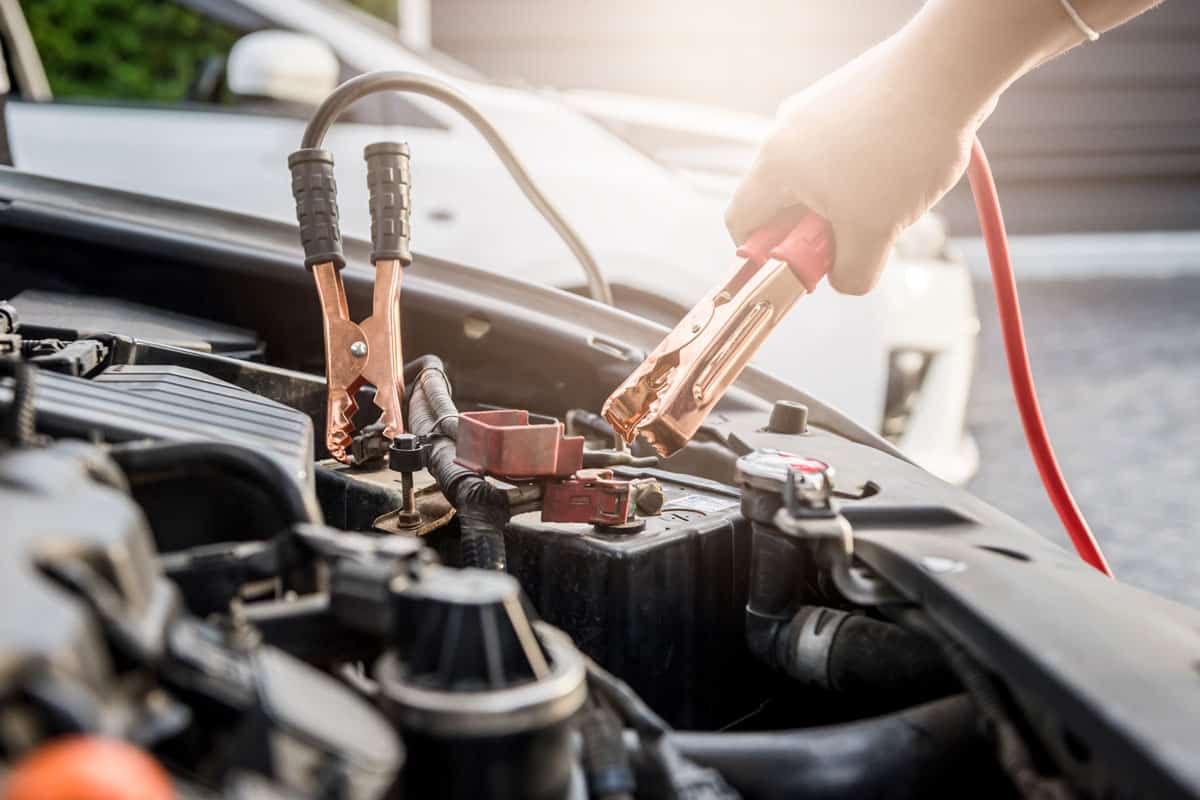
The amp rating of a car battery charger can impact not just how fast you can recharge your car battery, but its longevity as well. Before buying any sort of car battery charger, be sure to do your research and know what you want. You want to ensure that you buy one that is compatible with your battery and that it fits your needs.
You might also like:
Why Is My Car Battery Charger Draining My Battery?

